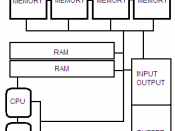Fault Tolerance is described as a design feature that allows a system to continue operating in spite of errors or problems that occur. "Many areas of fault tolerance are considered when designing or altering information systems. These include but are not limited to, power system, transaction journalizing, database shadowing or mirroring, raid technologies, network redundancy, and security to name a few" (UOP, 2005). Many organizations rely on electronic data, which is critical to daily functions, as a result process control's, LAN's, and business-driven transaction documentation can be damaged if the system in interrupted. "A fault-tolerant power system is one comprised of multiple power converters configured so as to maintain the integrity of the output power bus in the event of any one single-point failure within the power conversion system" (O'Boyle, 2009).This paper will discuss fault tolerance in the power systems aspect of an organization. With organizations relying heavily on electronic data their first line of defense should consist of developing a fault tolerant power system, since the main source of applications and hardware functioning properly begins with the power source.
Developing a fault tolerant power system can reduce the likelihood of a power failure.
The after affects of hurricane Katrina in 2005 proved that an effective fault tolerant power system was necessary for many organizations. Manny oil refineries learned that by not having power supplies such as battery banks, generators, and uninterruptible power supplies that productions was stopped, which caused massive sums of money being lost. Since then those oil refineries have implemented various power supplies. Designed in a diversity of configurations fault-tolerant power systems have many of the same shared traits such as (O'Boyle, 2009): 1. Redundancy -- adequate ability to maintain power bus function in case any single-point power system fault; 2. Fault isolation and detection -- capability...


